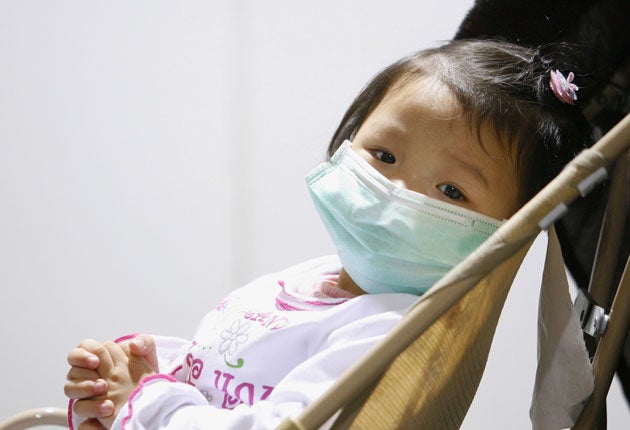Your support helps us to tell the story
From reproductive rights to climate change to Big Tech, The Independent is on the ground when the story is developing. Whether it's investigating the financials of Elon Musk's pro-Trump PAC or producing our latest documentary, 'The A Word', which shines a light on the American women fighting for reproductive rights, we know how important it is to parse out the facts from the messaging.
At such a critical moment in US history, we need reporters on the ground. Your donation allows us to keep sending journalists to speak to both sides of the story.
The Independent is trusted by Americans across the entire political spectrum. And unlike many other quality news outlets, we choose not to lock Americans out of our reporting and analysis with paywalls. We believe quality journalism should be available to everyone, paid for by those who can afford it.
Your support makes all the difference.A baby in Texas became the first confirmed death outside Mexico today from the new H1N1 flu strain.
A US government official said a 23-month-old child in the southern state had died from the virus. A health official said the baby was a resident of Mexico.
In the US, a total of 91 cases were confirmed across the country this afternoon: 16 in Texas, 14 in California and cases in Massachusetts, Michigan, Arizona, Nevada, Indiana, Kansas and Ohio.
Meanwhile Spain has detected its first case of swine flu in a person who has not recently visited Mexico, Health Minister Trinidad Jimenez said today. Authorities have confirmed 10 cases of the disease and 53 other cases are under investigation.
The World Health Organisation said today that 114 cases of swine flu, including eight deaths, had been officially reported.
No time has been set for a World Health Organisation emergency committee meeting on whether to raise the pandemic alert level because of the swine flu virus, said Keiji Fukuda, WHO acting assistant director-general. Adecision to move to phase 5 from phase 4 would represent a significant step and it was too soon to predict how the outbreak would develop.
"The most important thing now is that countries and organisations have time to prepare," he told reporters.
Nearly a week after the threat of a pandemic emerged in Mexico, that country remained the hardest hit, with up to 159 people killed.
France said it would seek tomorrow a European Union ban on all flights to Mexico because of the flu. The EU, like the United States and Canada, has already advised against nonessential travel to the popular tourist destination.
Cases have now been confirmed in the United States, Canada, New Zealand, Israel, Britain, Spain and, today, Germany.
Germany's infectious diseases agency found swine flu in a man and a woman in their late 30s in Bavaria, and a 22-year-old woman in Hamburg at the other end of the country, all of whom had recently returned from Mexico.
The World Health Organisation said it may raise its pandemic alert level to phase five - the second highest - if it was confirmed that infected people in at least two countries were spreading the new disease to other people in a sustained way.
Before the US death was reported, Keiji Fukuda, acting WHO assistant director for health security and environment, said it could be a "very mild pandemic", adding, however, that influenza "moves in ways we cannot predict".

Join our commenting forum
Join thought-provoking conversations, follow other Independent readers and see their replies
Comments